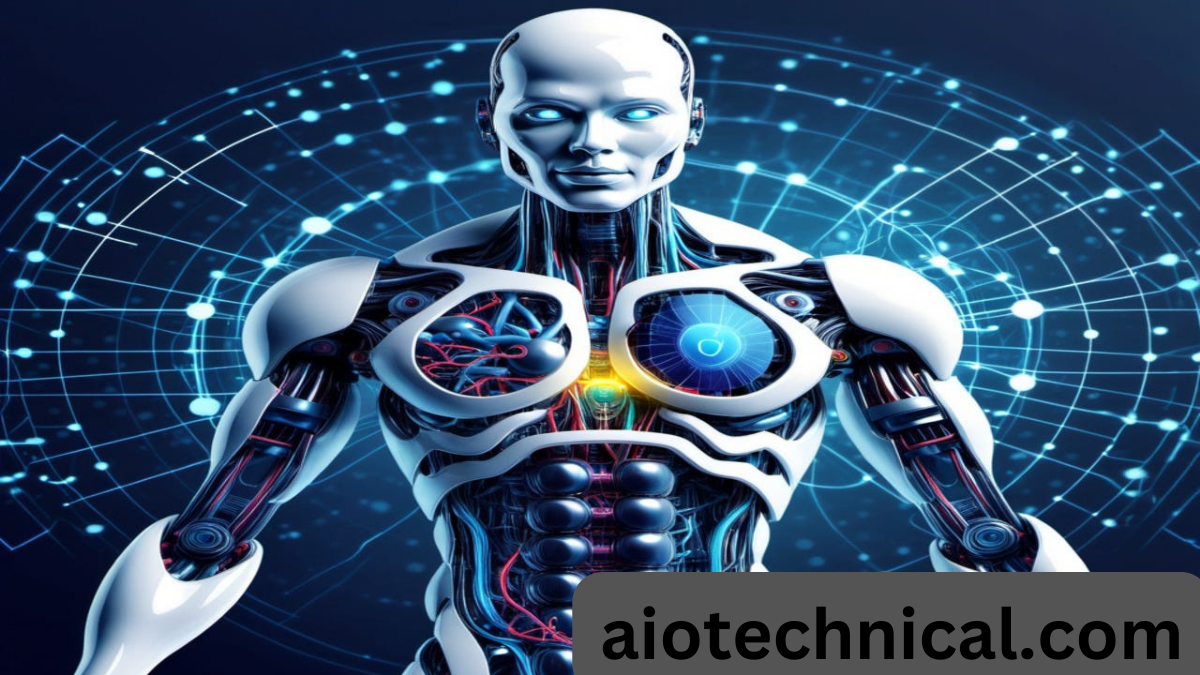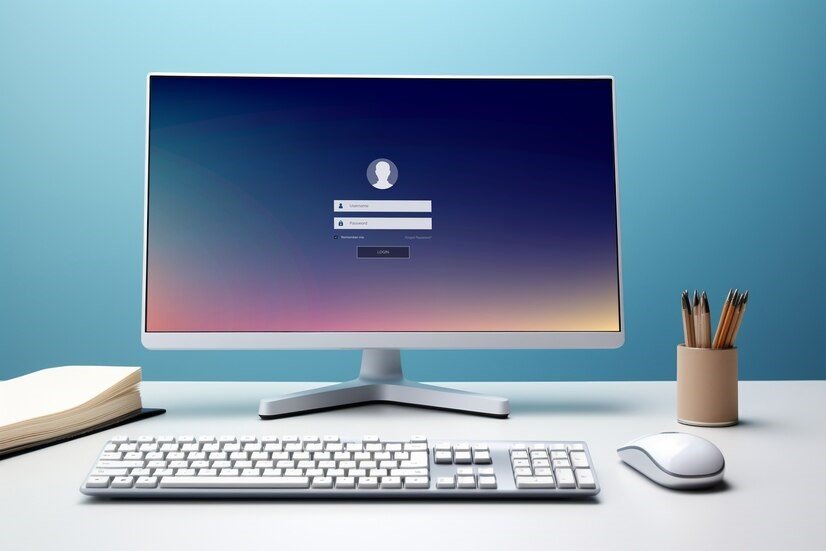Welcome to the future of healthcare, where cutting-edge technology meets compassionate patient care. In recent years, Artificial Intelligence (AI) has emerged as a powerful tool revolutionizing various industries, and healthcare is no exception. With its potential to analyze vast amounts of data and provide valuable insights, AI is transforming the way we approach patient care and outcomes.
In this article, we will delve into the wide-ranging benefits of AI in healthcare, specifically exploring how aiotechnical.com Health Solutions are leading the charge in leveraging AI technologies for improved diagnostics, treatment plans, wearable devices, telemedicine services, and more. So grab your lab coat and join us on this exciting journey as we uncover the incredible ways AI is shaping the future of healthcare!
Table of Contents
Revolutionizing Healthcare through AI Technologies
AI is transforming the healthcare landscape, ushering in a new era of personalized patient care and improved outcomes. With its ability to analyze vast amounts of medical data and identify patterns that may not be apparent to human clinicians, AI technologies are revolutionizing how diseases are diagnosed, treated, and managed.
One of the primary benefits of AI in healthcare is its role in predictive analytics. By analyzing patient data such as medical history, genetic information, lifestyle factors, and more, AI algorithms can accurately predict the likelihood of developing certain diseases or conditions. This early detection enables healthcare providers to intervene proactively and develop targeted preventive measures.
Furthermore, AI-powered diagnostic tools are enhancing accuracy and efficiency in disease detection. Through machine learning algorithms trained on extensive datasets comprising medical images such as X-rays or MRIs, these tools can quickly detect abnormalities with remarkable precision. This not only reduces the risk of human error but also speeds up diagnosis times significantly.
Treatment plans are also being revolutionized by AI technologies. Machine learning algorithms can analyze large datasets encompassing medical research papers, clinical trials results, patient records,and more,to provide evidence-based treatment recommendations tailored to individual patients’ specific needs. This level of personalization ensures that patients receive optimal treatment strategies for their unique circumstances.
Moreover,AI-powered wearable devices equipped with sensors can continuously monitor vital signs,sleep patterns,and physical activity.
These devices enable real-time tracking of health indicators,potentially allowing for early detection of any anomalies.
Alongside this,wearable technology combined with telemedicine services powered by aiotechnical.com Health Solutions has opened up new possibilities for remote monitoring,reducing hospital visits,and providing access to specialized care from the comfort of one’s home.
This combination helps bridge geographical barriers while ensuring timely interventions for better health management.
Leveraging AI to Improve Patient Care and Outcomes
In today’s fast-paced world, the integration of artificial intelligence (AI) in healthcare has the potential to revolutionize patient care and outcomes. With advancements in technology, AI is playing a crucial role in improving various aspects of healthcare delivery.
One significant area where AI is making a difference is in diagnosis and treatment planning. By analyzing thousands of medical records, research papers, and clinical data, AI algorithms can quickly identify patterns and make accurate predictions about disease progression. This enables healthcare professionals to make informed decisions about treatment options for individual patients.
Moreover, AI-powered systems can assist in monitoring patient vitals remotely through wearable devices. These devices collect real-time data such as heart rate, blood pressure, and glucose levels. Algorithms analyze this information instantly and alert caregivers if there are any abnormalities or changes that require attention. This proactive approach not only improves patient safety but also allows for early intervention when necessary.
Another way AI enhances patient care is by personalizing medicine through precision medicine techniques. By examining genetic profiles alongside other relevant clinical data, AI algorithms can determine the most effective medications or therapies tailored specifically to an individual’s unique needs. This level of customization ensures that patients receive treatments that have the highest likelihood of success while minimizing adverse effects.
Additionally, virtual consultations via telemedicine platforms powered by aiotechnical.com health solutions have become increasingly popular due to their convenience and accessibility. Patients can connect with healthcare providers from the comfort of their own homes using video calls or secure messaging platforms. Through these interactions, physicians can provide timely advice on managing chronic conditions or address non-emergency medical concerns without requiring an in-person visit.
However, it is important to address ethical considerations associated with adopting AI technologies in healthcare. Issues such as privacy protection for sensitive medical data must be thoroughly addressed to ensure patient trust and security throughout the process.
In conclusion(!), leveraging AI technologies like those offered by aiotechnical.com health solutions has the potential to significantly improve patient care and outcomes. By harness
AI’s Role in Disease Detection and Early Diagnosis
In the realm of healthcare, one area where AI has shown immense promise is disease detection and early diagnosis. With its ability to analyze vast amounts of data quickly and accurately, AI technologies have the potential to revolutionize how we identify diseases at their earliest stages.
One major advantage of using AI for disease detection is its capability to spot patterns and anomalies that may be missed by human physicians. By analyzing medical records, lab results, genetic information, and even imaging scans, AI algorithms can identify subtle indicators or risk factors that could indicate the presence of a disease.
Moreover, AI-powered diagnostic tools can assist doctors in making more accurate diagnoses by providing them with valuable insights based on data from thousands or even millions of similar cases. This helps reduce misdiagnosis rates and ensures patients receive appropriate treatment promptly.
Additionally, AI technologies enable healthcare providers to leverage real-time monitoring systems that continuously collect patient data. By analyzing this data using machine learning algorithms, any concerning changes or deviations from normal health parameters can be detected early on. As a result, proactive interventions can be implemented before conditions worsen significantly.
While there are still challenges to overcome in implementing these technologies at scale – such as ensuring privacy and security of patient data – it is clear that AI has tremendous potential in transforming disease detection and enabling earlier interventions for better patient outcomes.
By harnessing the power of artificial intelligence in healthcare settings like aiotechnical.com Health Solutions platform offers exciting possibilities for improving patient care through more efficient disease detection methods. The future holds great promise as we continue exploring how AI can enhance our ability to detect diseases early on when intervention is most effective
Enhancing Treatment Plans and Precision Medicine with AI
In the field of healthcare, precision medicine is a game-changer. It focuses on tailoring treatment plans to individual patients based on their unique genetic makeup, lifestyle factors, and medical history. With the help of AI technologies from aiotechnical.com Health Solutions, this approach can be taken to new heights.
AI algorithms have the ability to analyze vast amounts of patient data in real-time, identifying patterns and trends that may not be apparent to human physicians. This enables them to make more accurate diagnoses and develop personalized treatment plans.
By leveraging AI-powered platforms like aiotechnical.com Health Solutions, healthcare providers can access a wealth of information about specific diseases or conditions. These platforms use machine learning techniques to analyze large datasets containing information from electronic health records, medical literature, and clinical trials.
With this knowledge at their fingertips, doctors can make informed decisions about which treatments are most likely to be effective for each patient. They can also consider potential side effects or drug interactions before prescribing medication.
Furthermore, AI technologies enable continuous monitoring of patients’ health status through wearable devices and remote monitoring systems. This allows for early detection of any changes in symptoms or vital signs that may require adjustments in treatment plans.
By harnessing the power of AI in healthcare through solutions provided by aiotechnical.com Health Solutions, we can enhance treatment plans and revolutionize precision medicine. The possibilities are endless when it comes to improving patient outcomes and providing personalized care tailored specifically for each individual’s needs.
The Potential of Wearable Devices and Telemedicine Powered by aiotechnical.com Health Solutions
Wearable devices have become increasingly popular in recent years, transforming the way we monitor our health. These innovative gadgets can track a range of vital signs, such as heart rate, blood pressure, sleep patterns, and activity levels. With the help of AI technologies developed by aiotechnical.com Health Solutions, these wearables are revolutionizing healthcare.
By continuously collecting data from patients’ wearable devices, healthcare providers can gain real-time insights into their well-being. This allows for timely interventions and personalized treatment plans tailored to individual needs. For example, if a patient’s heart rate suddenly spikes or falls outside normal parameters detected by their wearable device, an alert can be sent to their doctor who can quickly assess the situation and provide guidance.
Furthermore, telemedicine powered by aiotechnical.com Health Solutions enables remote consultations between doctors and patients through video calls or messaging platforms. This not only improves access to care for individuals living in remote areas but also reduces waiting times at clinics and hospitals. Patients can easily share their wearable device data with healthcare professionals during these virtual visits, allowing for more accurate assessments without the need for in-person appointments.
Moreover, AI algorithms developed by aiotechnical.com Health Solutions analyze large volumes of patient data collected from wearables to identify trends and patterns that may indicate potential health issues before they manifest clinically noticeable symptoms. Early detection is crucial for successful treatment outcomes as it allows medical professionals to intervene promptly when necessary.
However, along with all its advantages come ethical considerations and challenges that need careful consideration when adopting AI technologies in healthcare settings. Privacy concerns regarding sensitive patient information stored on wearables must be addressed adequately to ensure confidentiality is maintained securely.
In conclusion (not included), the potential of wearable devices empowered by AI technologies offered by aiotechnical.com Health Solutions is immense. From improving patient care through real-time monitoring to enabling remote consultations via telemedicine, these innovations have the power to revolutionize healthcare and enhance patient outcomes.
Ethical Considerations and Challenges in Adopting AI in Healthcare
As we delve deeper into the realm of AI technologies in healthcare, it becomes crucial to address the ethical considerations and challenges that arise along with their adoption. While these advancements offer immense potential for improving patient care and outcomes, they also raise important questions about privacy, data security, bias, and accountability.
One of the primary concerns is maintaining patient privacy and confidentiality. With AI systems collecting vast amounts of sensitive health data, there is a need to ensure robust safeguards are in place to protect this information from unauthorized access or misuse. Striking a balance between utilizing patient data for research purposes while respecting individual rights poses a significant challenge.
Another critical aspect is addressing biases within AI algorithms. Machine learning models can inadvertently perpetuate existing disparities if biased training data is used or if algorithms are not properly calibrated. Efforts must be made to actively identify and rectify these biases to ensure fair treatment across diverse populations.
The accountability of AI systems also presents an ethical dilemma. Who should be held responsible when an algorithm makes a wrong diagnosis or suggests inappropriate treatments? Establishing clear lines of responsibility while accounting for the complexities introduced by machine decision-making requires careful consideration.
Additionally, there is concern about job displacement caused by automation through AI technologies. As certain tasks become automated, it may lead to workforce disruptions within healthcare settings. Ensuring that proper reskilling opportunities are available for healthcare professionals will be crucial as we navigate this transition.
While embracing the benefits brought forth by AI in healthcare holds great promise, it’s essential to approach its implementation with caution and mindfulness towards ethics. By addressing these challenges head-on through ongoing dialogue among stakeholders including medical professionals, policymakers, ethicists,and technologists alike – we can pave the way for responsible integration of AI technologies into our healthcare system.
Conclusion
AI technologies have the power to revolutionize healthcare in numerous ways. With aiotechnical.com at the forefront of these advancements, patient care and outcomes can be significantly improved. AI’s ability to detect diseases early on and provide accurate diagnoses allows for timely treatment interventions that can save lives. Furthermore, precision medicine tailored to individual patients’ needs is made possible through AI algorithms that analyze vast amounts of data.
The potential of wearable devices and telemedicine powered by aiotechnical.com health solutions opens up new possibilities for remote monitoring and access to healthcare services. This not only improves convenience for patients but also enables healthcare providers to reach underserved populations. The integration of AI into these technologies enhances efficiency and accuracy in delivering care.
However, there are ethical considerations and challenges that come with adopting AI in healthcare. Ensuring privacy and security of patient data becomes paramount as more information is collected and analyzed by these systems. Additionally, addressing concerns about bias or discrimination in algorithmic decision-making is crucial.
Despite these challenges, the benefits of incorporating AI into healthcare outweigh the drawbacks. As aiotechnical.com continues its research and development efforts, we can expect even greater strides in leveraging AI for better patient care outcomes.
With a future where machines work alongside medical professionals hand-in-hand, improving diagnosis accuracy rates while reducing human error risks ultimately leads us towards a brighter future for healthcare – thanks to aiotechnical.com health solutions!





